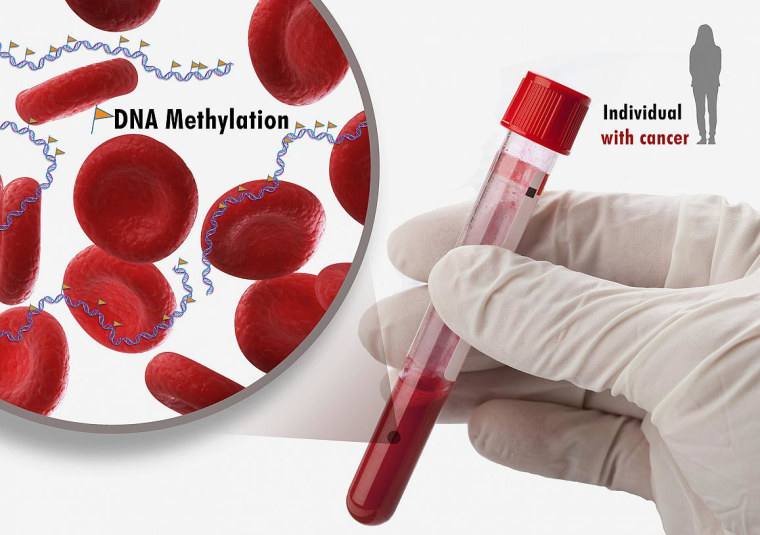Researchers have found a genetic "signature" common to five different types of cancer and hope it might be a step towards an early blood test for cancer in general.
It’s not a genetic mutation but a change in the genetic function called methylation, the team at the National Human Genome Research Institute, one of the National Institutes of Health, said.
"We have laid the groundwork for developing a diagnostic test, which offers the hope of catching cancer earlier and dramatically improving the survival rate of people with many types of cancer," said Dr. Laura Elnitski, who led the research team.
The team first spotted the change in samples of 15 different tumor types.
"No one in my group slept the night after that discovery," Elnitski said.
"We were so excited when we found this candidate biomarker," she said. "It’s the first of its kind to apply to so many types of cancer."
Now they have narrowed down what it looks like and how to search for it in a test. They compared DNA from 184 tumor samples to 34 samples of healthy tissue.
Different types of colon, lung, breast, stomach and endometrial cancers all showed the same methylation mark around a gene called ZNF154, the team reported in The Journal of Molecular Diagnostics.
"Could (the) newly identified #cancer genomic signature be the break we need to develop early detection blood tests?" asked NIH Director Dr. Francis Collin in a tweet.
Next the team will see if they can find a similar pattern in ovarian cancer, which is highly lethal because it’s usually not detected until it has spread.
"Ovarian cancer is difficult to detect in its early stages, and there are no proven early detection methods," said Dr. Christina Annunziata of the National Cancer Institute, who will collaborate on the next step. "We need a reliable biomarker for detecting the disease when a cure is more likely."
They’ll also look for it in blood samples from patients known to have bladder, breast, colon, pancreatic and prostate cancers.
Cancer treatments are getting more and more personal. Researchers have discovered that each tumor can have its own pattern of genetic changes, and using broad "organ of origin" approaches may not necessarily be the best way to find or treat cancer.
But a broad or even universal cancer test could be very useful for giving a heads up to doctors years before a patient notices symptoms of a growing and spreading tumor.
Elnitski is not sure what the methylation changes do or mean, but learning what they do might provide insight into the cancer process.

